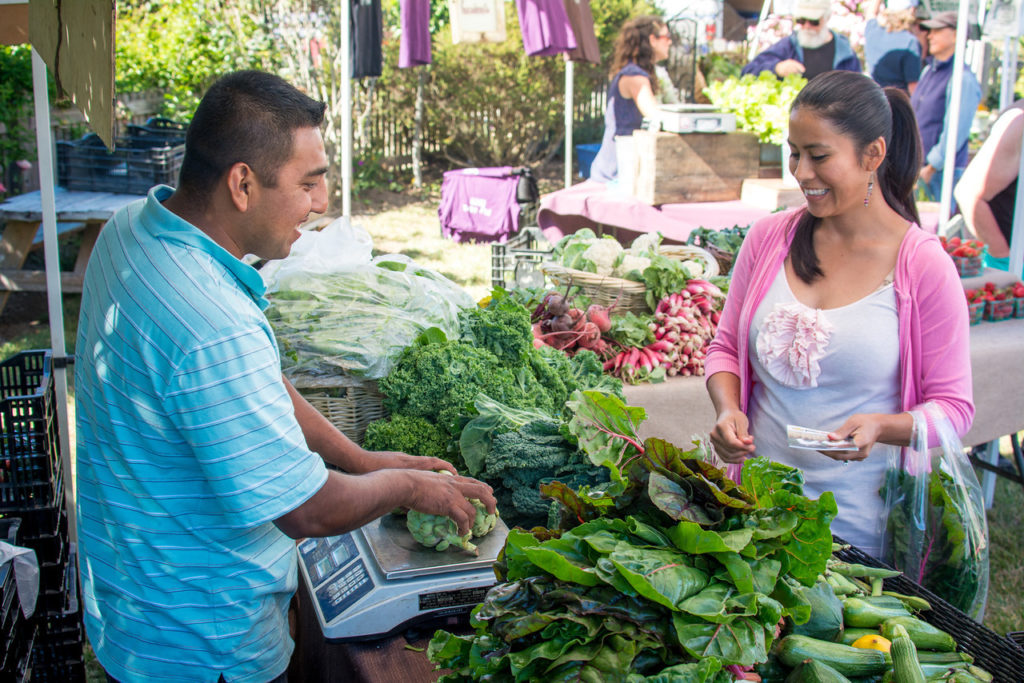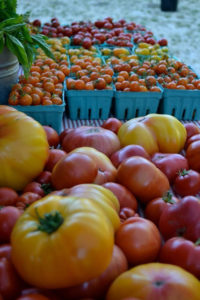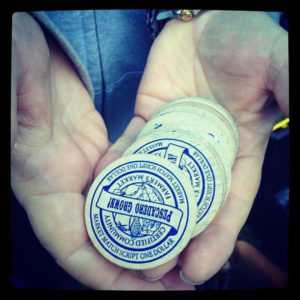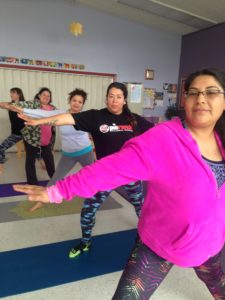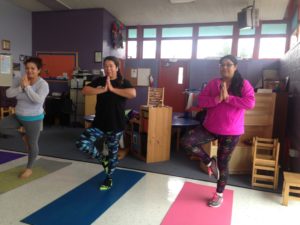by Omar Ortega
In high school I was smart but I wasn’t in the classes and on the pathway to get into a four year college. When I was a senior, I finally found out about the A-G requirements which are all the classes I needed to even apply to a four year university. So I ended up applying to a community college. I knew I wanted to keep going beyond high school. I always knew that.
I knew from an early age that I wanted to go to college. I started to work when I was eight or nine, working with my dad doing landscaping. I wanted to help my parents and I knew just working wouldn’t help them to my maximum potential. With an education, I could reach my highest potential to help them. That’s always been my goal because my biggest debt is repaying my parents back for always supporting me. Later I found my own summer jobs, like painting barracks. I saw my dad always working hard and I wanted to make it easier for him–he never forced me to start working.
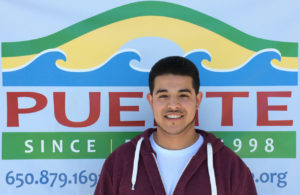
Omar at work at Puente
I’ve always appreciated how my parents influenced me but didn’t push me. They were so smart to let me decide that I wanted college for myself. I’ve always looked up to my dad because he’s super smart, knowing my dad came here when he was ten and then he graduated from high school. Learning that he did that–I was thirteen or fourteen when we were at my grandparents’ house and my dad got a big yellow envelope. It was for my dad, from the high school he went to and it was his high school transcripts. They were all As. That gave me the push–my dad came here and he did it all on his own. If he could do it, I could do it. He could have gone to college but he decided to have a family instead. I know in a way that he’s getting to experience college through me.
I’ve been on Foothill College for four years and it’s been the best experience. I wanted to go there not knowing anyone. I wanted to do something new and have the experience of being in a new environment. I knew if I hung out with my friends at school, I wouldn’t focus on my education.
I’ve worked the whole time I’ve been working on this degree. There were times when I was working full time, and sometimes I’d cut back my hours when classes were really hard. Puente was really flexible with my time and hours. It was one of the reasons I’ve been able to stay at Puente and be in school. Puente’s flexibility has helped me put college first, and I feel like I wouldn’t have gotten that anywhere else.
One of my favorite classes was probably Communications because that was where I got to crack out of my shell. Everyone’s biggest fear is public speaking and that’s all we did. Right now I’m in Calculus for Business and Economics. I’m putting a lot effort into this class and I’m not getting a good grade. I think part of my problem in this class is a language barrier between me and my professor. Still, I’m putting so much effort into this class to find the best way to do well in the class.
Omar will graduate the last week of June with an Associates of Science (AS) in Business Administration. In the fall he will start at Cal State East Bay, majoring in Business Administration.

